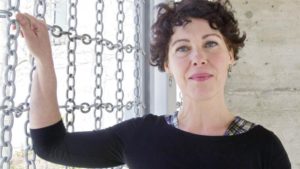In the Days of Rain
No, it’s not about things to do in the British summer but an interesting book about the impact the Exclusive Brethren had on the author, her father and her wider family.
Rebecca Stott, the author, is now Professor of English Literature at the University of East Anglia but the book has a local connection as she was brought up in Brighton and many ex-members of the EB’s still live in this area.
The Brethren movement began in the mid 19th century in Plymouth with men like J.N. Derby who were disillusioned with the Anglican church and wanted to return to a simpler, more New Testament form of worship. The movement as a whole, which extended to many countries, brought enormous blessing and influence including great missionary endeavours which are still operating to this day.
But this book deals with a branch of the Brethren know as the Exclusive Brethren (EBs) who took a bad direction under the leadership of a man called Jim Taylor Junior (JT junior) in the early 1960s. A group that were already quite rule bound were taken to a new level, with all kinds of rules enforced from the top with rigid and manipulative discipline.
The book is worth reading as a beautifully written personal account of what it is like to be in a cult environment and the effect it has on a family. Not just the restrictions and abuse of power etc., but the impact it can have on your view of God and how it can sour your understanding of God and his grace in Christ as it did the author.
Rebecca’s father lost his faith and turned from being a faithful implementer of JT Junior’s draconian and legalistic strategy to become an adulterer, a compulsive gambler and was later imprisoned for embezzlement. Although he also was able to pursue a reasonably successful career as an actor, his life and obvious gifts were largely wasted and his lonely death which triggered the writing of his book is very sad to read.
One reviewer of the book has suggested that Rebecca blames her father’s sins on the EBs but I think the book is so well written that you are left to make you own mind up. She describes an incidence of his bizarre and strange behaviour at the end of the book in which she suggests that he was both sublime and abject at the same time. This reminds me of Pascal’s description of humanity as ‘glory and rubbish’, made in the image of God yet so drastically fallen.
Rebecca’s mother on the other hand seems to have been the anchor of the family after they had left the EBs and maintained her faith, attending a local evangelical church in Brighton with her children.
The author describes the experience of leaving the EBs in this way. ‘…..people who have recently left a cult describe feeling bewildered and frightened; their eyes dart around, searching for points of reference… the feeling of being lost, not-at-home, without walls.’
Rebecca herself became a committed Darwinist. She says ‘In this version of the world nothing had purpose or design . . . It was neither cruel nor kind, neither good nor bad. But it was a kind of miracle.” In 2013 Stott published Darwin’s Ghosts, perhaps in part a homage to the man who she says had helped remake the world that had collapsed around her after she left the EBs.
One non-Christian reviewer of her books on Darwinism says this ‘… like a disappointed and deceived lover, she has gone to the other extreme and adopted another orthodoxy to replace the one from which was striving to escape – a very common phenomenon.’

Rebecca Stott
Interesting, and this is one aspect of a cult that really strikes me. Everything outside the group is black. ‘Out there it’s only darkness’ Rebecca says they were told. If you want to stay in the light, remain in the cult. This black and white view of life leads to spiritual pride and grudging compliance. You can see that Darwinism as a philosophy has this same kind of mindset, ridiculing anyone who does not sign up to it’s rigid tenets.
Os Guinness in his book ‘The Call’ says “We betray our modern arrogance and forget the place of mystery in God’s dealing with us.” Although God has revealed himself in His Word, we can’t explain everything and must humbly submit to God in those areas which are ‘grey’ to our human understanding.
For me, Rebecca’s book is a window on what life can be like growing up in a cult and the impact it can have on a person’s thinking.
It further provides a serious warning to beware the abuses of power and the folly of following mere human teaching and rules. I was led to the following conclusions:
- We can be thankful for faithful leaders. We need to encourage them in their ministry of teaching and preaching as they seek to teach ‘the whole counsel of God’.
- We can be thankful that our church with all it’s failures and faults and fuzziness is a genuine community where people seek to obey Christ out of love for Him, rather than grudging devotion to human authority.
- We need also to make sure we are pursuing a genuine personal piety and devotion to Christ and not just following leaders slavishly.
One feels there should be another chapter in the book ‘From Brethren Legalism to Freedom in Christ’. Rebecca still has contact with those who left the EBs but retained a genuine faith in Christ.
We pray they will ultimately be able to point her to Christ ‘in whom are hidden all the treasures of wisdom and knowledge.’ (Colossians 2 vs. 3).
